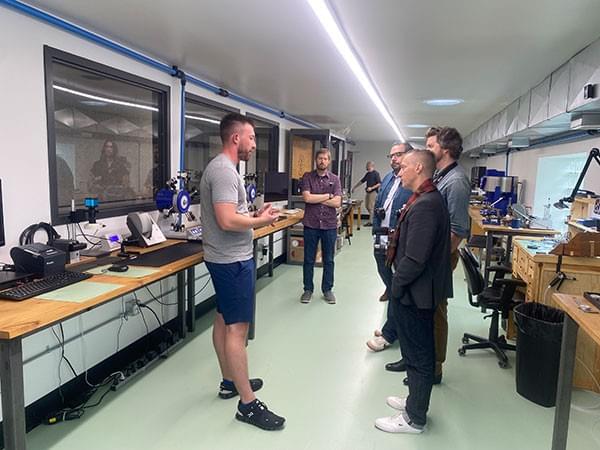
R.T. Custer in 2021, after his watch company Vortic prevailed in a legal battle with Swatch
Fort Collins, Colo.— The future of independent American watchmaking was thrown into uncertainty this summer when Vortic Watch Company cofounder and president R.T. Custer suffered a massive stroke at just 34 years old.
Custer, who helped build Vortic into a cult brand by repurposing antique American pocket watches into bespoke wristwatches, collapsed on June 30 while on a business trip in Detroit. His wife, Lindsay Roselle, now finds herself as interim CEO, balancing her husband’s long recovery with the demands of keeping their company alive.
A Stroke That Nearly Ended It All
According to Roselle, Custer was “in good health” with no warning signs. He collapsed in his hotel gym but was only minutes away from a Level 1 trauma center with world-class neurosurgeons—a twist of fate that doctors say saved his life.
“Had this happened at home in Fort Collins, where advanced intervention isn’t available, the outcome would have been very different,” Roselle wrote in an Instagram post.
Doctors discovered a clot blocking more than 90% of his right cerebral artery. After immediate clot-busting medication and emergency surgery, Custer survived—though his recovery is expected to take years, not months.

R.T. Custer (left) leading a 2023 media tour of Vortic’s manufacturing facility in Fort Collins, Colo.
A Company in Limbo
Vortic, founded in 2013 through Kickstarter, has always thrived on its underdog spirit. The brand fought and won a long legal battle against the Swatch Group over its use of Hamilton pocket watches. But today, the battle is more personal: survival without its charismatic founder.
“Doctors estimate at least 12 months before he can even consider working again, and 2–3 years before he can return to the intense demands of running his company,” reads a GoFundMe campaign, which has raised more than $88,000 for the family.
Roselle admitted that she and Custer briefly considered closing or selling Vortic, but chose continuity instead. “R.T. is mentally sharp, present, and himself. We want to keep the dream alive,” she said.
Operational Challenges Mount
The crisis comes as Vortic’s sister brand, Colorado Watch Company, faces “unexpected manufacturing challenges,” delaying preorders. Meanwhile, Tyler Wolfe, Custer’s original cofounder, is no longer involved—he was bought out last November and now works elsewhere.
With limited leadership capacity and production hiccups, Roselle has turned to the brand’s loyal customers: “Support us by purchasing from our ready-to-ship watches and merchandise.”
The Bigger Question for Independent Watchmaking
Vortic is more than a business—it’s been a symbol of American-made watch innovation in an industry dominated by Swiss giants. But Custer’s collapse highlights a brutal truth: what happens when a small brand is too dependent on one visionary?
For collectors and fans, the dilemma is raw. Will customers rally around Vortic to secure its future, or will the absence of its founder slowly erode the company’s momentum?
